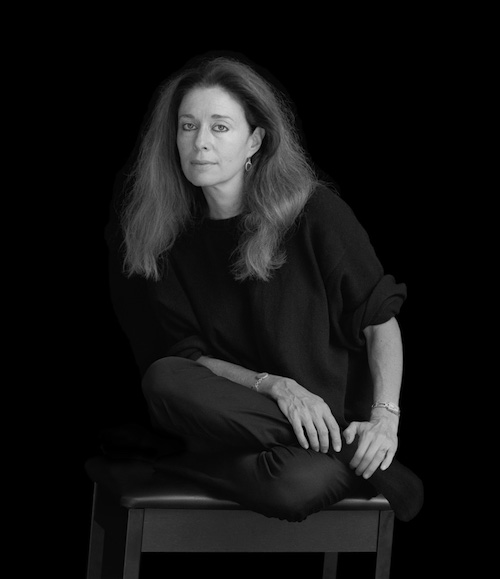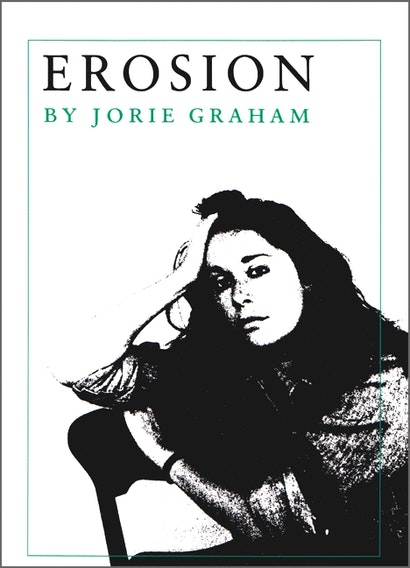I watched them once, at dusk, on television, run,in our motel room half-way throughNebraska, quick, glittering, past beauty, pastthe importance of beauty,archaic,not even hungry, not even endangered, driving deeper and deeperinto less. They leapt up falls, ladders,and rock, tearing and leaping, a gold river,and a blue river travelingin opposite directions.They would not stop, resolution of willand helplessness, as the eyeis helplesswhen the image forms itself, upside-down, backward,driving up intothe mind, and the worldunfastens itselffrom the deep ocean of the given. . . . Justice, aspenleaves, mother attemptingsuicide, the white night-flying moththe ants dismantled bit by bit and carried inright through the crackin my wall. . . . How helplessthe still pool is,upstream,awaiting the gold bladeof their hurry. Once, indoors, a child,I watched, at noon, through slatted wooden blinds,a man and woman, naked, eyes closed,climb onto each other,on the terrace floor,and ride—two gold currentswrapping round and round each other, fastening,unfastening. I hardly knewwhat I saw. Whatever shadow there was in that worldit was the one each castonto the other,the thin black seamthey seemed to be trying to work awaybetween them. I held my breath.As far as I could tell, the work they didwith sweat and lightwas good. I’d saythey traveled far in oppositedirections. What is the lightat the end of the day, deep, reddish-gold, bathing the walls,the corridors, light that is no longer light, no longer clarifies,illuminates, antique, freed from the body ofthe air that carries it. What is itfor the space of timewhere it is useless, merelybeautiful? When they were done, they made a distanceone from the otherand slept, outstretched,on the warm tileof the terrace floor,smiling, faces pressed against the stone.
Feature Date
- November 22, 2021
Series
- What Sparks Poetry
Selected By
Share This Poem
Print This Poem
“Salmon” from EROSION: by Jorie Graham.
Published by Princeton University Press May 21st 1983.
Copyright © 1983 Princeton University Press.
All rights reserved.
Reproduced by Poetry Daily with permission.

Mariana Cook
One of the most celebrated poets of the American post-war generation, Jorie Graham is the author of numerous collections of poetry, including Hybrids of Plants and Ghosts (1980), Erosion (1983), The End of Beauty (1987), Region of Unlikeness (1991), The Dream of the Unified Field: Selected Poems 1974-1992 (1995) winner of the Pulitzer Prize for Poetry, Never (2002), Sea Change (2008), Place (2012), winner of the Forward Poetry Prize for best collection, From the New World (2015), Fast (2017), and Runaway (2020) among others. She has taught for many years at Harvard University as the Boylston Professor of Rhetoric and Oratory, the first woman to be given this position, which was previously held by Seamus Heaney and many other writers dating back to the first Boylston Professor, John Quincy Adams.

Princeton, New Jersey
Poetry Daily Depends on You
With your support, we make reading the best contemporary poetry a treasured daily experience. Consider a contribution today.



